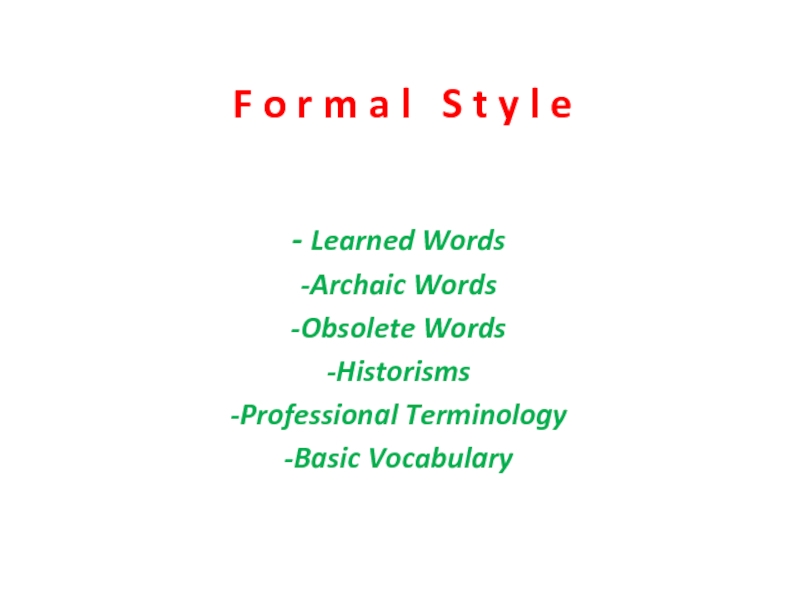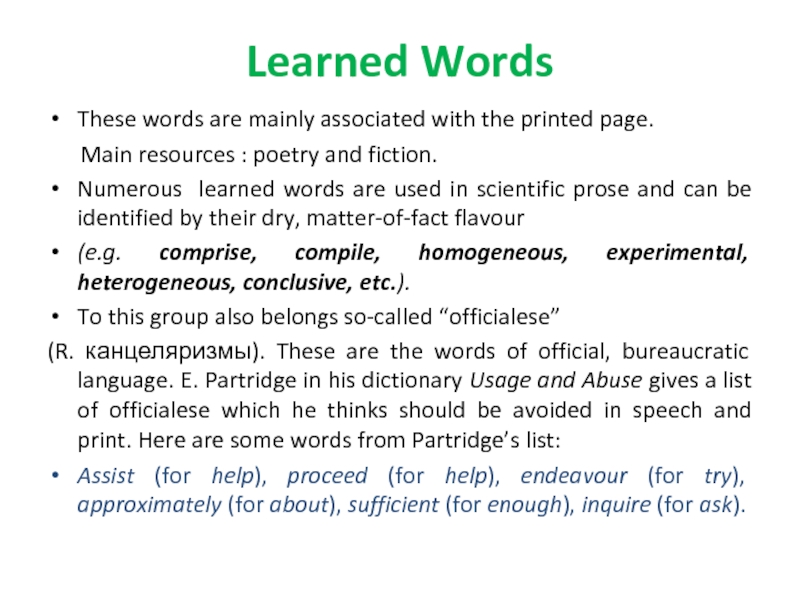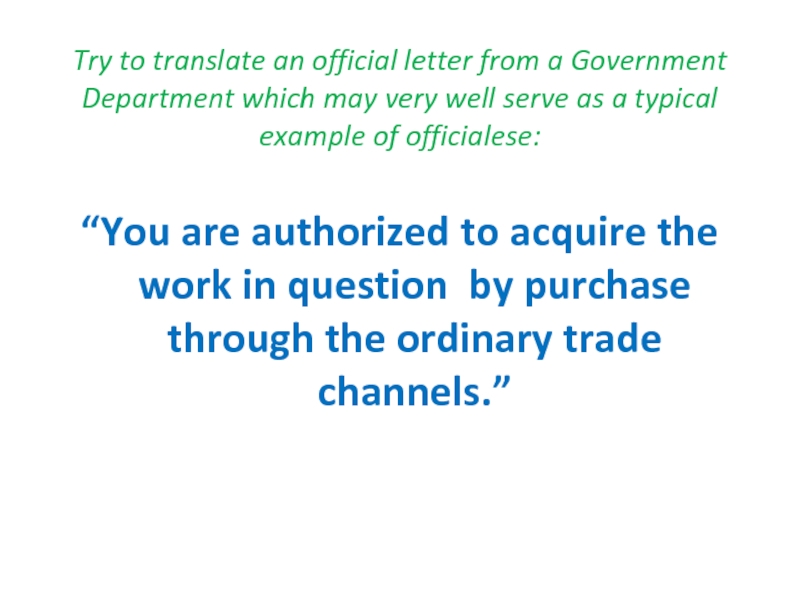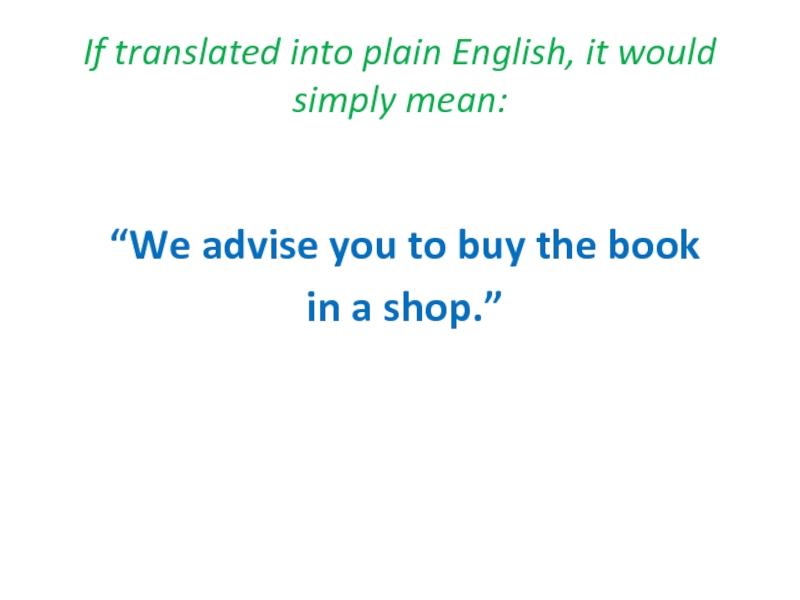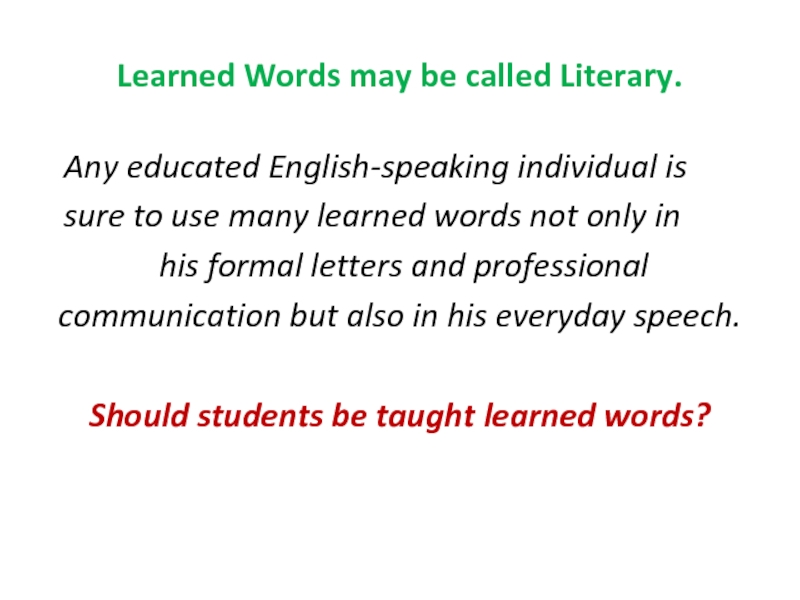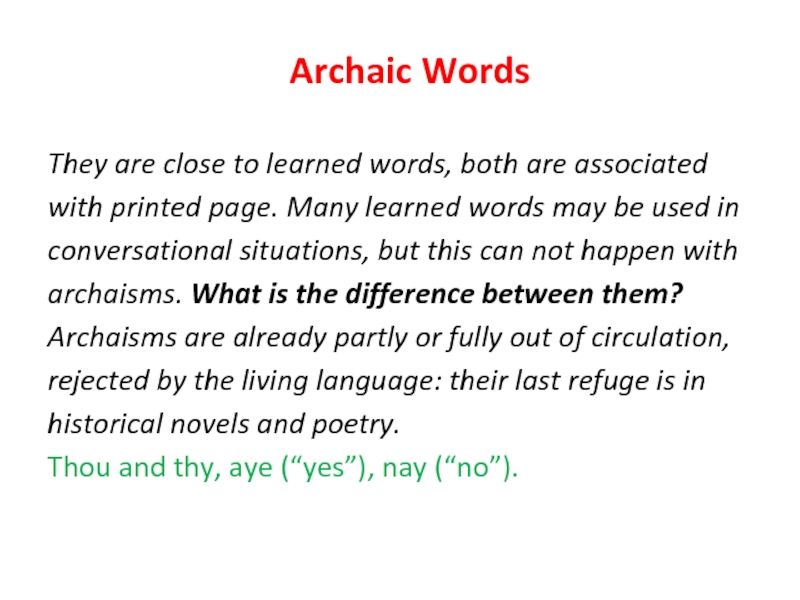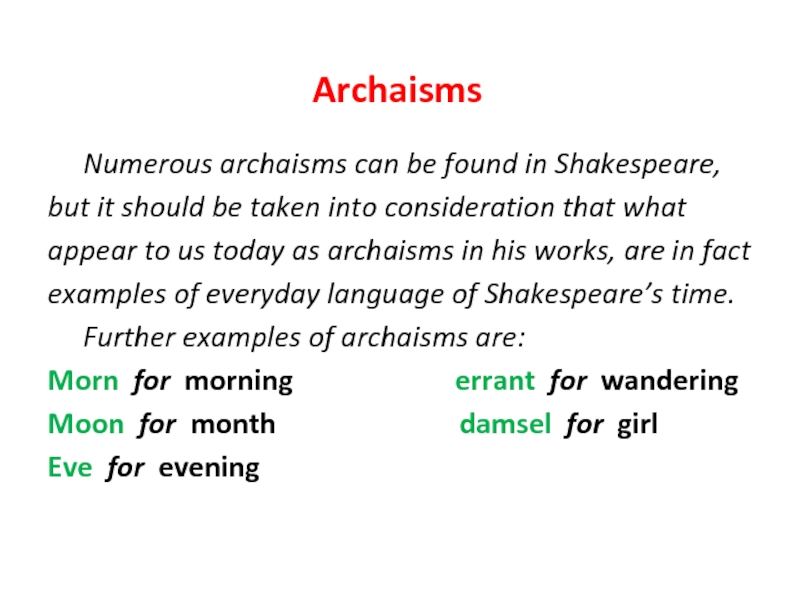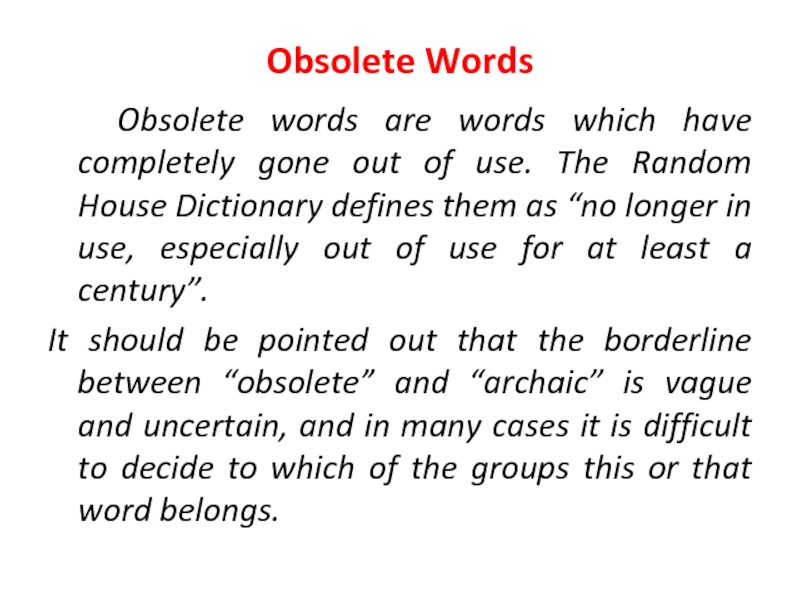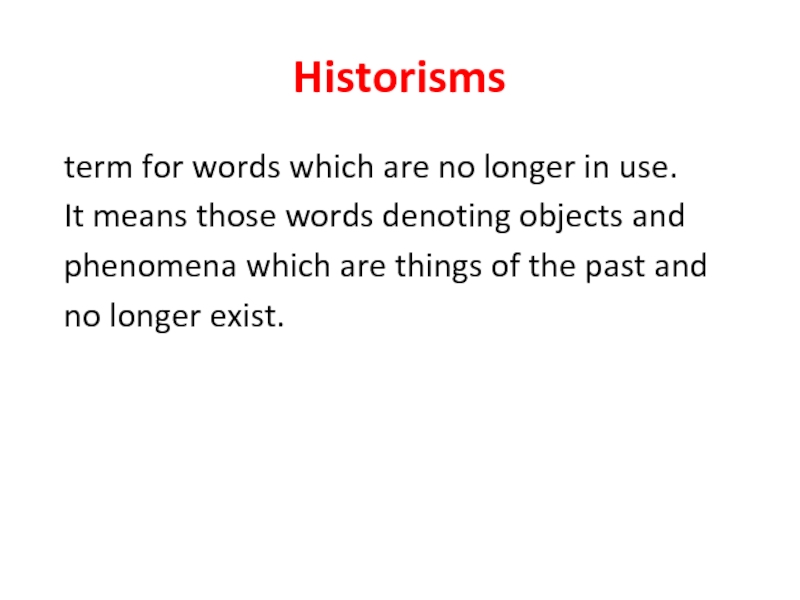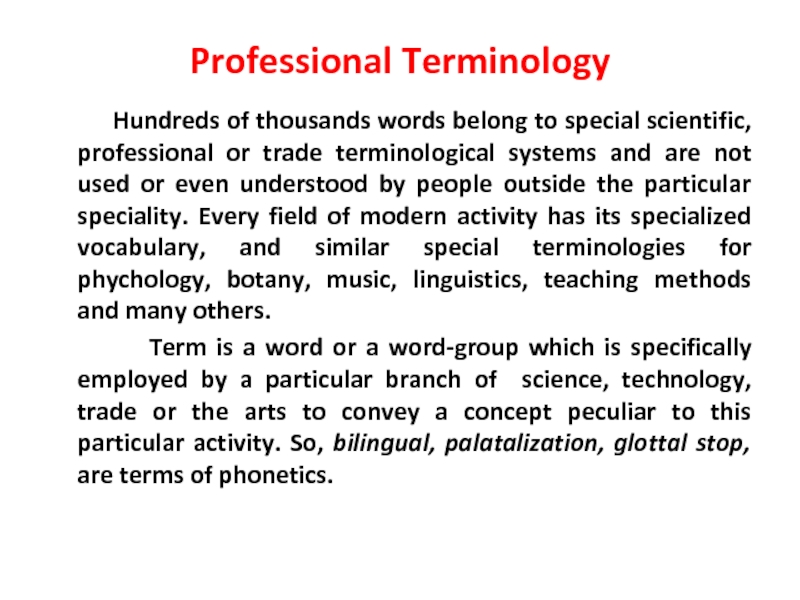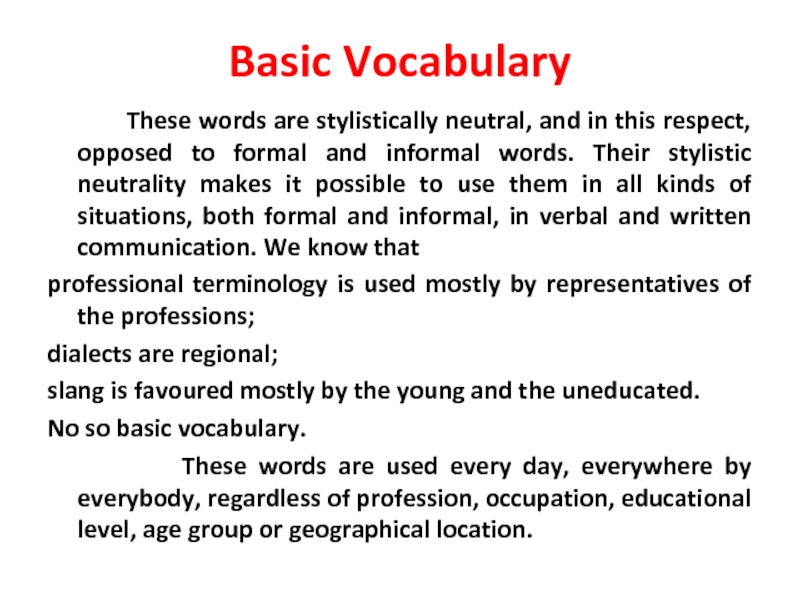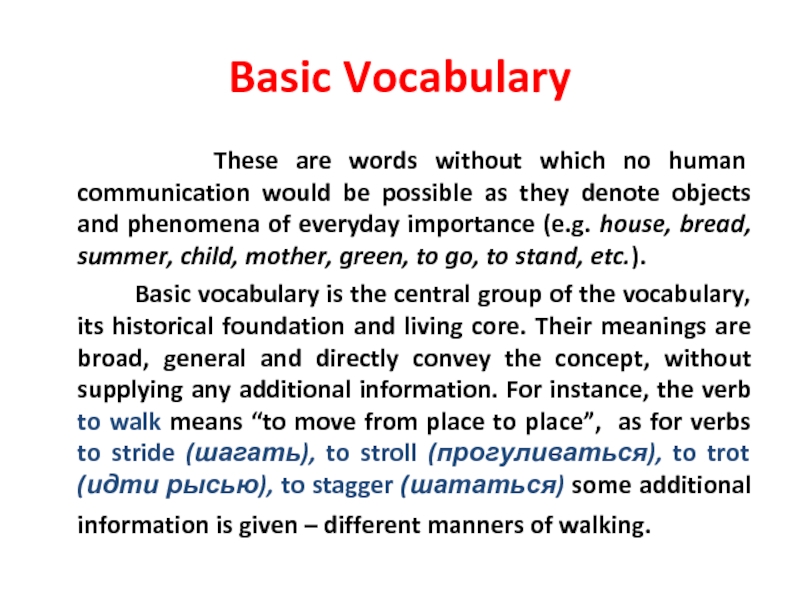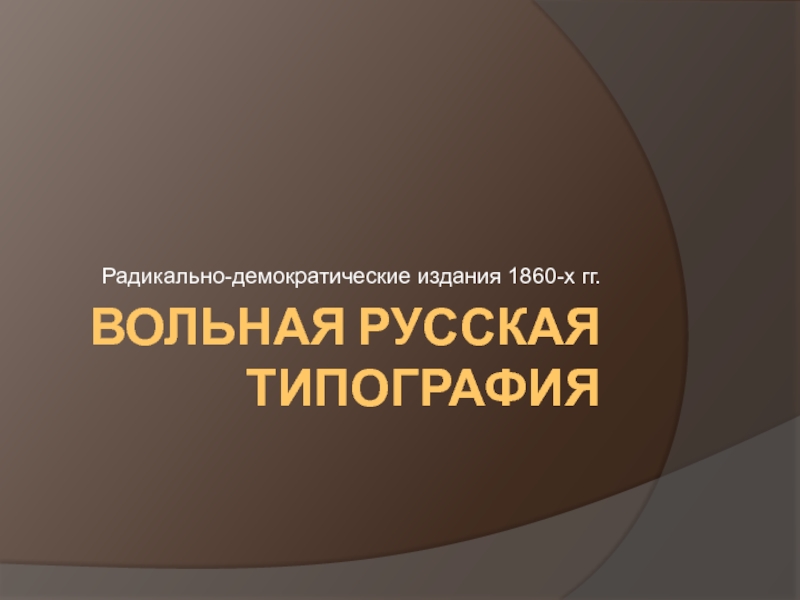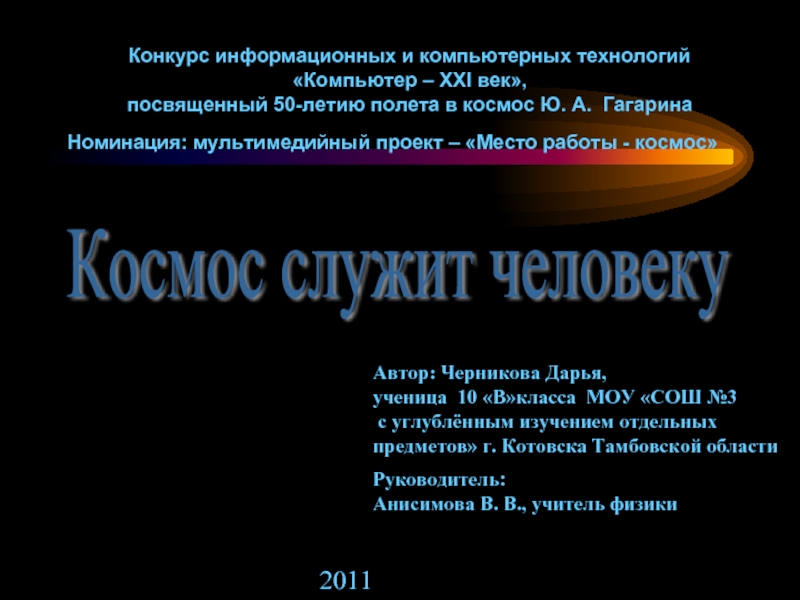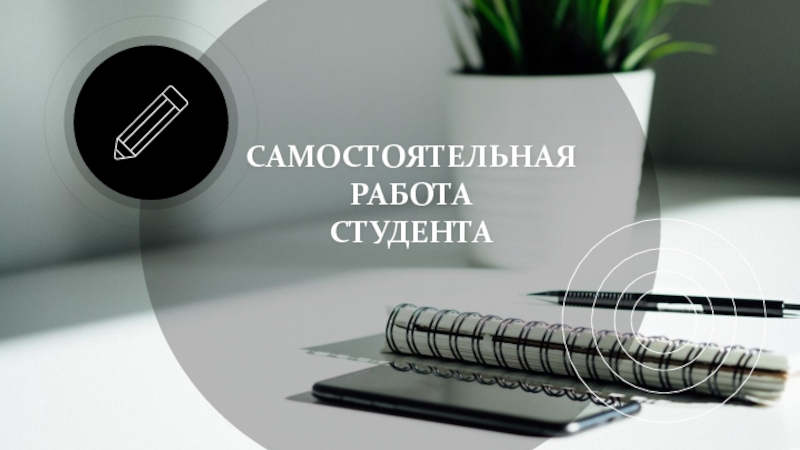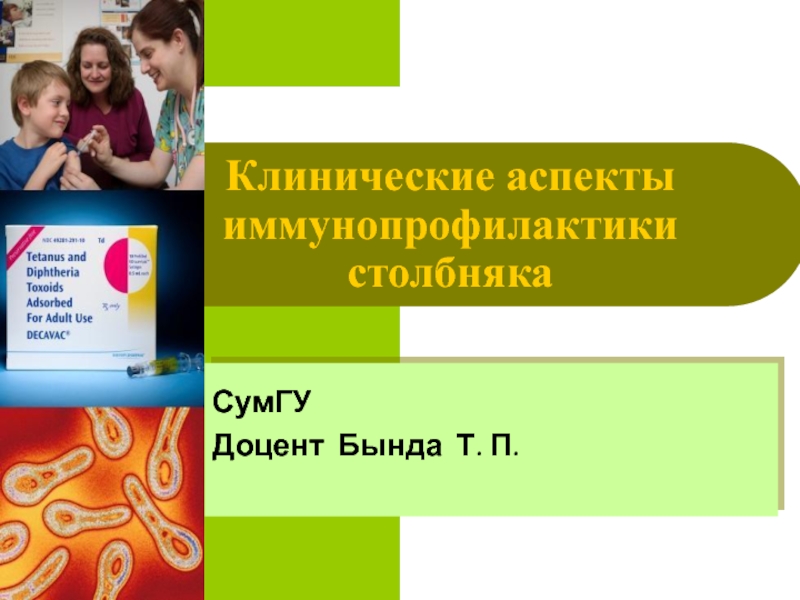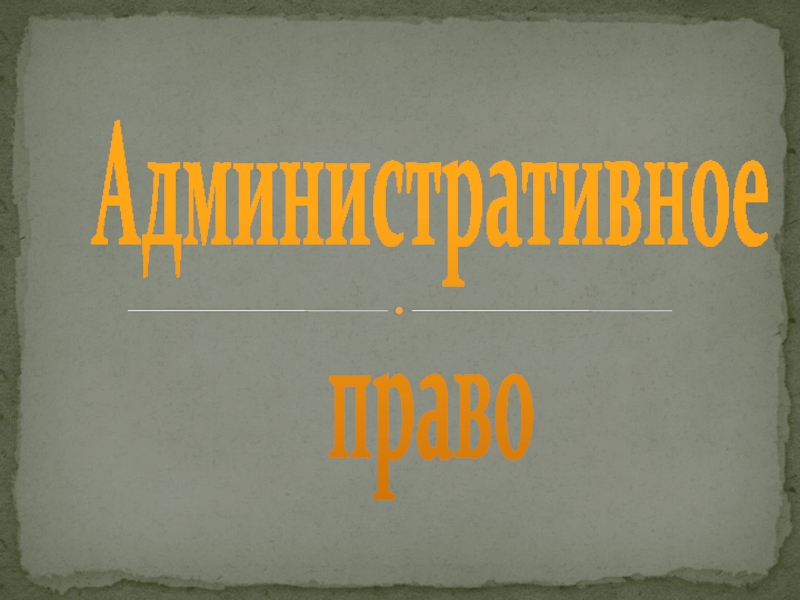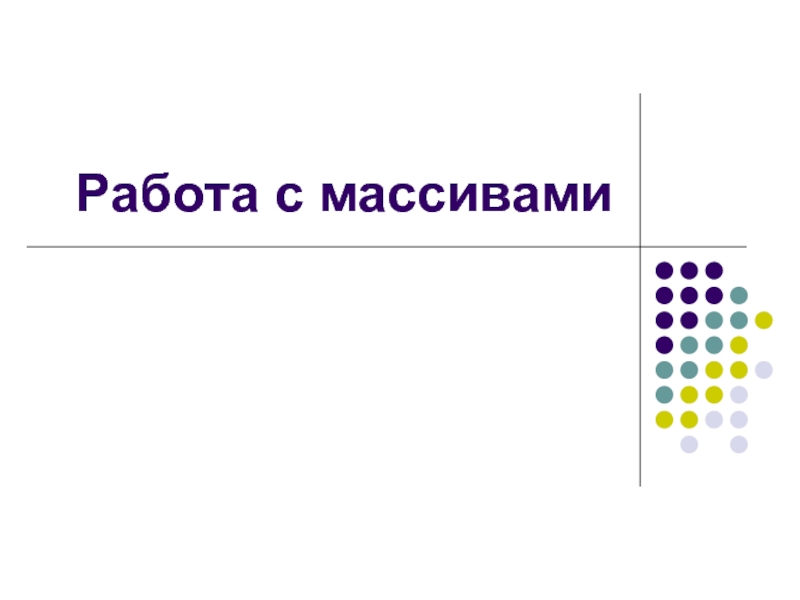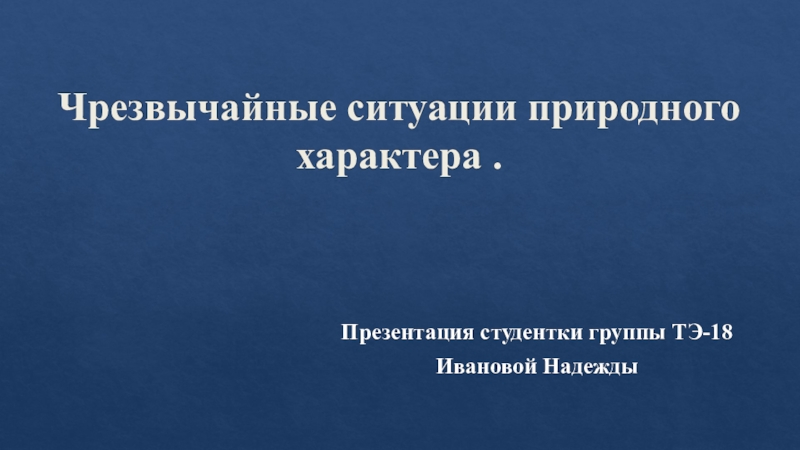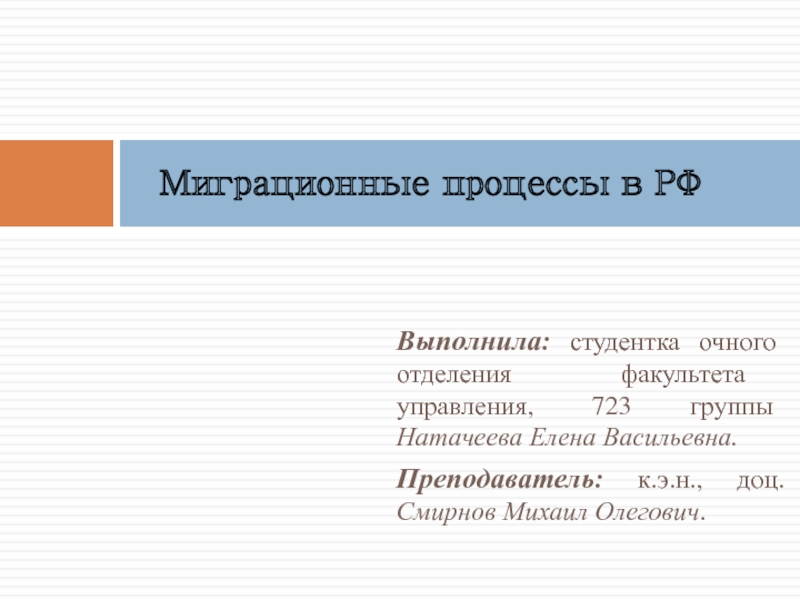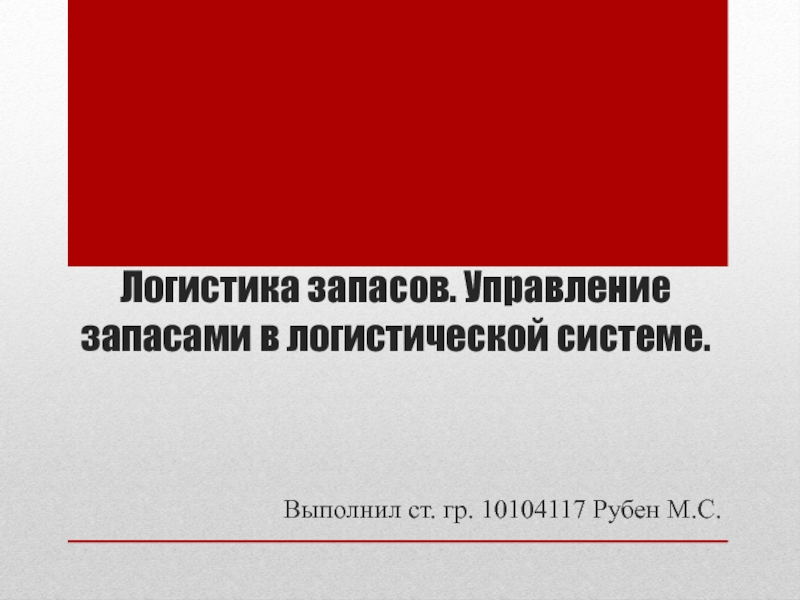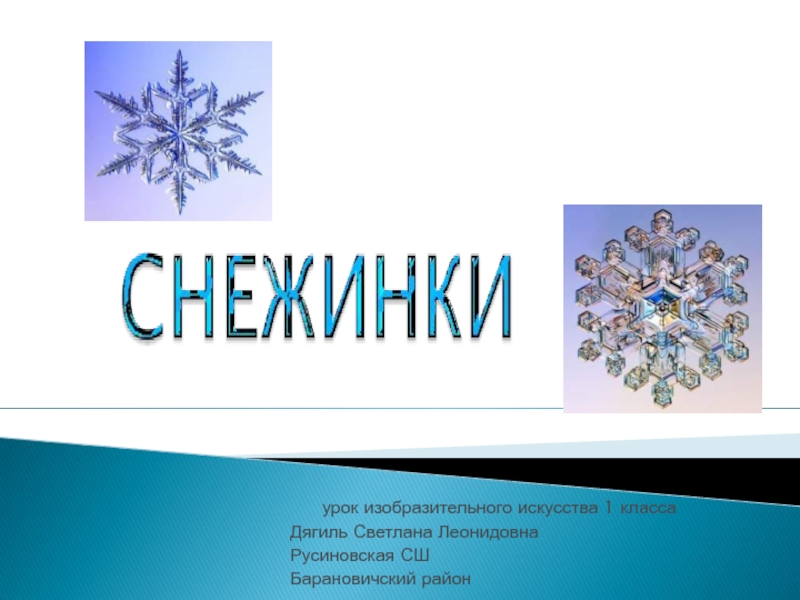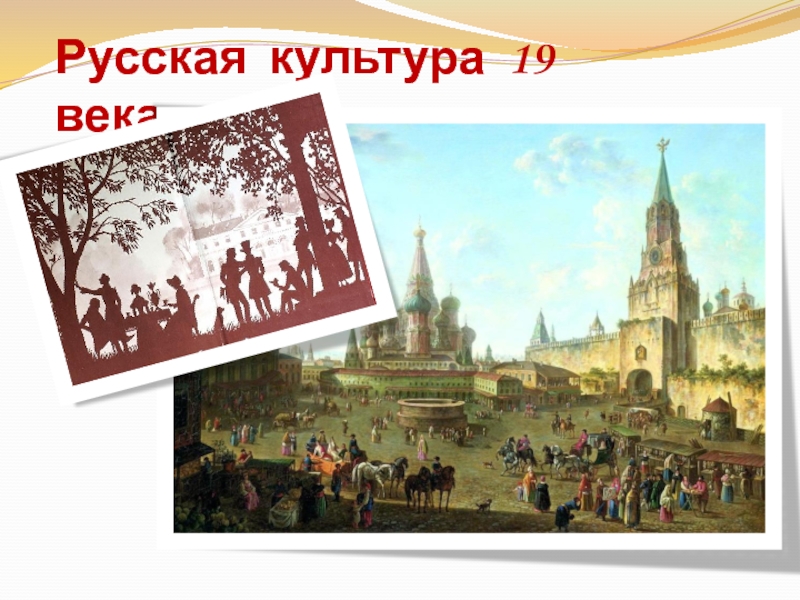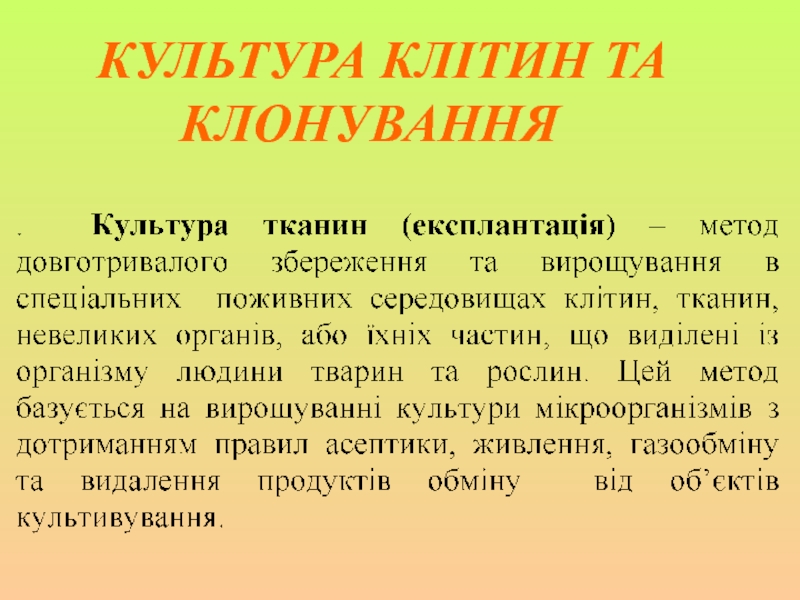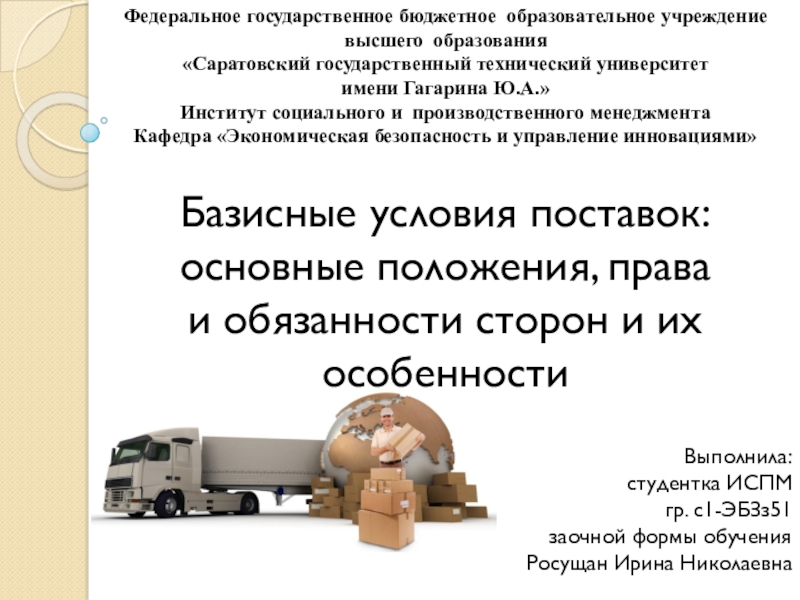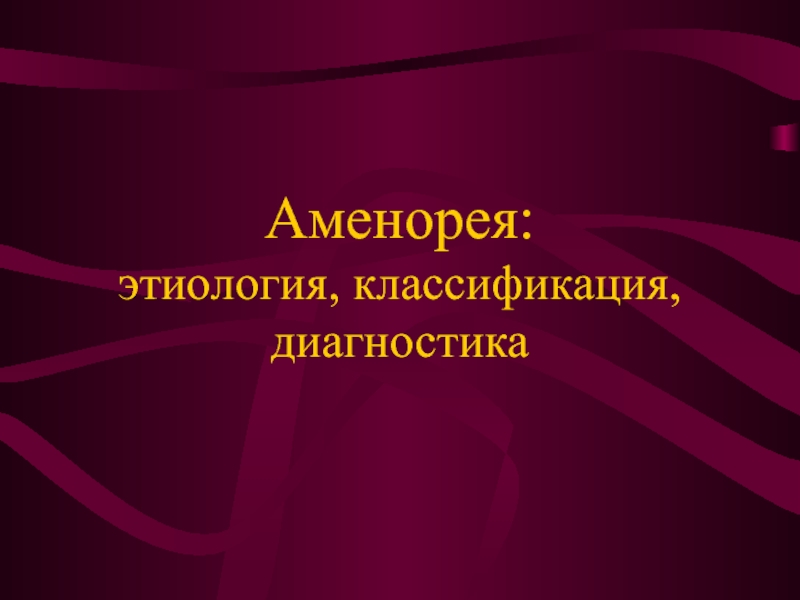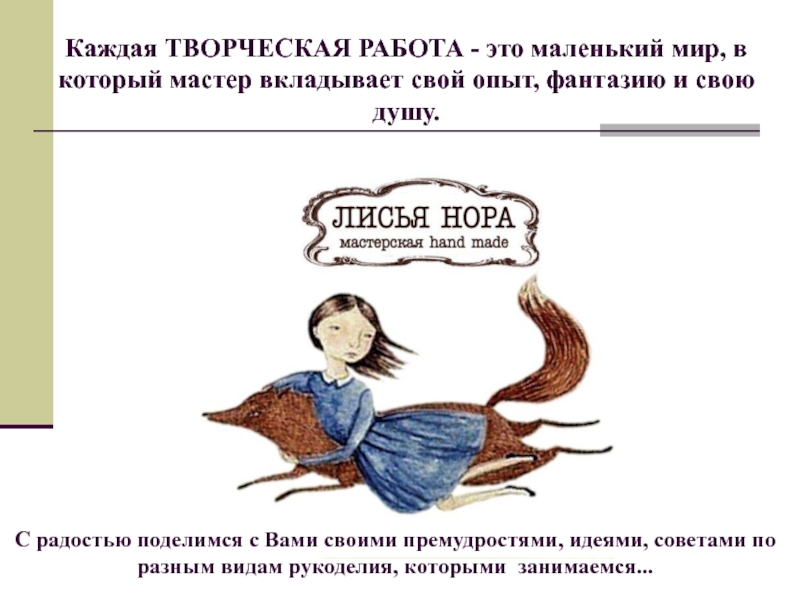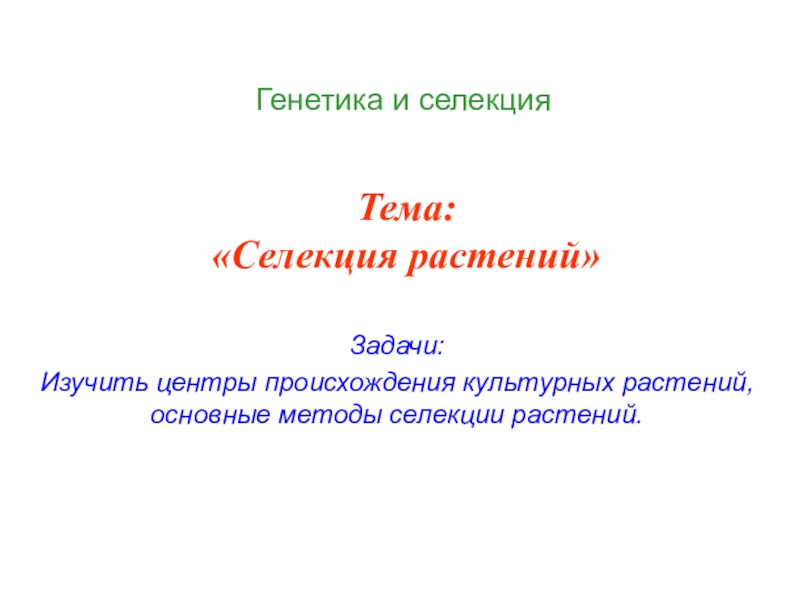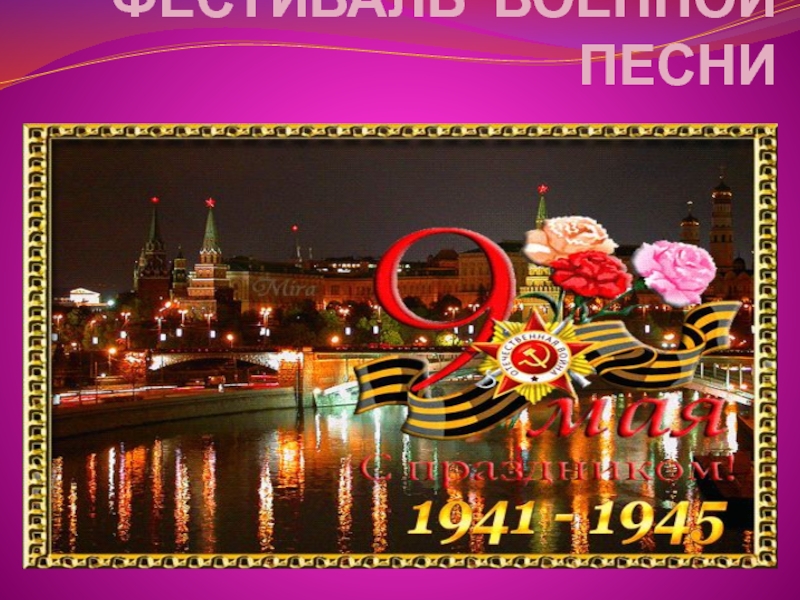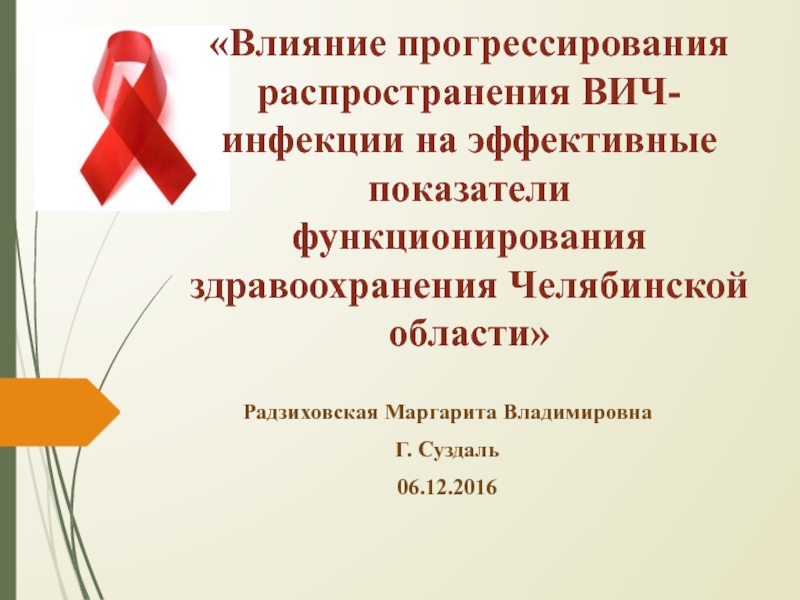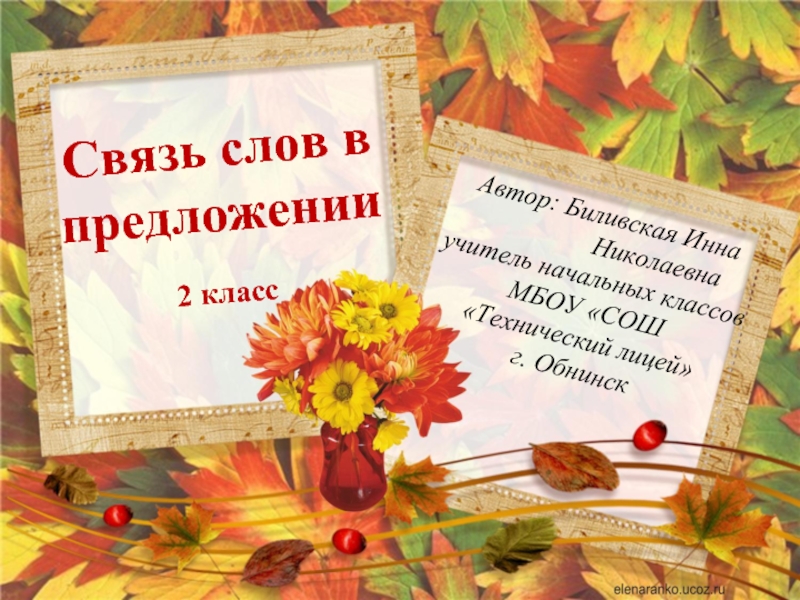Разделы презентаций
- Разное
- Английский язык
- Астрономия
- Алгебра
- Биология
- География
- Геометрия
- Детские презентации
- Информатика
- История
- Литература
- Математика
- Медицина
- Менеджмент
- Музыка
- МХК
- Немецкий язык
- ОБЖ
- Обществознание
- Окружающий мир
- Педагогика
- Русский язык
- Технология
- Физика
- Философия
- Химия
- Шаблоны, картинки для презентаций
- Экология
- Экономика
- Юриспруденция
F o r m a l S t y l e
Содержание
- 1. F o r m a l S t y l e
- 2. Learned WordsThese words are mainly associated with
- 3. Try to translate an official letter from
- 4. If translated into plain English, it would
- 5. Learned Words may be called Literary. Any
- 6. Archaic WordsThey are close to learned words,
- 7. Archaisms Numerous archaisms can be
- 8. Obsolete Words Obsolete words are words
- 9. Historisms term for words which are no
- 10. Professional Terminology Hundreds
- 11. Basic Vocabulary
- 12. Basic Vocabulary These
- 13. Скачать презентанцию
Learned WordsThese words are mainly associated with the printed page. Main resources : poetry and fiction.Numerous learned words are used in scientific prose and can be identified by
Слайды и текст этой презентации
Слайд 2Learned Words
These words are mainly associated with the printed page.
Main resources : poetry and fiction.
Numerous learned
words are used in scientific prose and can be identified by their dry, matter-of-fact flavour (e.g. comprise, compile, homogeneous, experimental, heterogeneous, conclusive, etc.).
To this group also belongs so-called “officialese”
(R. канцеляризмы). These are the words of official, bureaucratic language. E. Partridge in his dictionary Usage and Abuse gives a list of officialese which he thinks should be avoided in speech and print. Here are some words from Partridge’s list:
Assist (for help), proceed (for help), endeavour (for try), approximately (for about), sufficient (for enough), inquire (for ask).
Слайд 3Try to translate an official letter from a Government Department
which may very well serve as a typical example of
officialese:“You are authorized to acquire the work in question by purchase through the ordinary trade channels.”
Слайд 4If translated into plain English, it would simply mean:
“We
advise you to buy the book
in a shop.”
Слайд 5Learned Words may be called Literary.
Any educated English-speaking individual
is
sure to use many learned words not only in
his formal letters and professionalcommunication but also in his everyday speech.
Should students be taught learned words?
Слайд 6Archaic Words
They are close to learned words, both are associated
with
printed page. Many learned words may be used in
conversational situations,
but this can not happen witharchaisms. What is the difference between them?
Archaisms are already partly or fully out of circulation,
rejected by the living language: their last refuge is in
historical novels and poetry.
Thou and thy, aye (“yes”), nay (“no”).
Слайд 7Archaisms
Numerous archaisms can be found in Shakespeare,
but
it should be taken into consideration that what
appear to us
today as archaisms in his works, are in factexamples of everyday language of Shakespeare’s time.
Further examples of archaisms are:
Morn for morning errant for wandering
Moon for month damsel for girl
Eve for evening
Слайд 8Obsolete Words
Obsolete words are words which have completely
gone out of use. The Random House Dictionary defines them
as “no longer in use, especially out of use for at least a century”.It should be pointed out that the borderline between “obsolete” and “archaic” is vague and uncertain, and in many cases it is difficult to decide to which of the groups this or that word belongs.
Слайд 9Historisms
term for words which are no longer in use.
It means those words denoting objects and
phenomena which
are things of the past andno longer exist.
Слайд 10Professional Terminology
Hundreds of thousands words
belong to special scientific, professional or trade terminological systems and
are not used or even understood by people outside the particular speciality. Every field of modern activity has its specialized vocabulary, and similar special terminologies for phychology, botany, music, linguistics, teaching methods and many others.Term is a word or a word-group which is specifically employed by a particular branch of science, technology, trade or the arts to convey a concept peculiar to this particular activity. So, bilingual, palatalization, glottal stop, are terms of phonetics.
Слайд 11Basic Vocabulary
These words
are stylistically neutral, and in this respect, opposed to formal
and informal words. Their stylistic neutrality makes it possible to use them in all kinds of situations, both formal and informal, in verbal and written communication. We know thatprofessional terminology is used mostly by representatives of the professions;
dialects are regional;
slang is favoured mostly by the young and the uneducated.
No so basic vocabulary.
These words are used every day, everywhere by everybody, regardless of profession, occupation, educational level, age group or geographical location.
Слайд 12Basic Vocabulary
These are words without
which no human communication would be possible as they denote
objects and phenomena of everyday importance (e.g. house, bread, summer, child, mother, green, to go, to stand, etc.).Basic vocabulary is the central group of the vocabulary, its historical foundation and living core. Their meanings are broad, general and directly convey the concept, without supplying any additional information. For instance, the verb to walk means “to move from place to place”, as for verbs to stride (шагать), to stroll (прогуливаться), to trot (идти рысью), to stagger (шататься) some additional information is given – different manners of walking.
